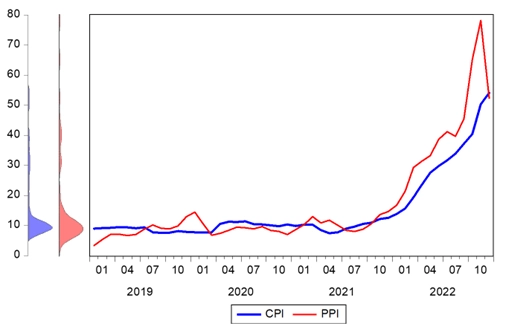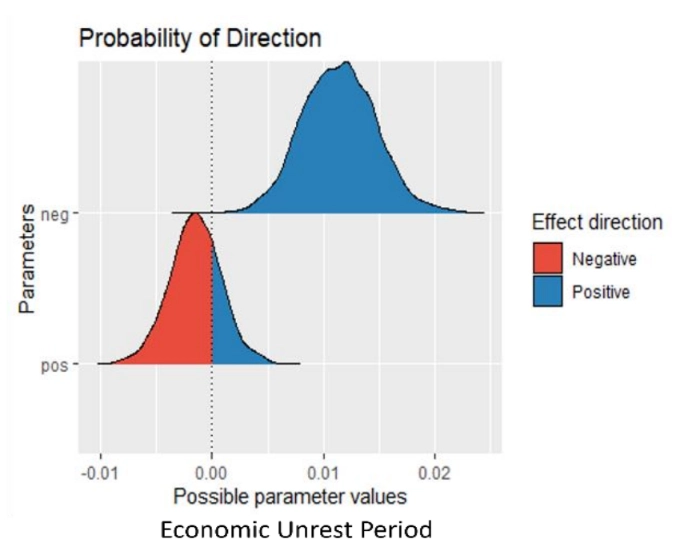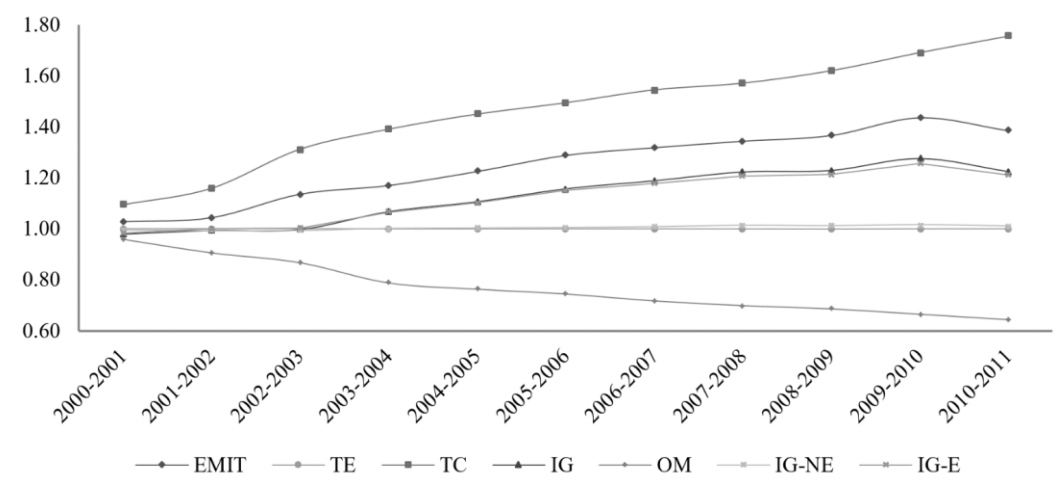Money holding and budget deficit in a growing economy with consumers living forever
Abstract
I examine the problem of budget deficit in a growing economy in which consumers hold money as a part of their savings in the case where consumers live forever. For simplicity and tractability I use a discrete time dynamic model and Lagrange multiplier method. In the appendix I briefly explain the solution using a discrete time version of the Hamiltonian method. I will show the following results. 1) Budget deficit is necessary for full employment under constant prices. 2) Inflation is induced if the actual budget deficit is greater than the value at which full employment is achieved under constant prices. 3) If the actual budget deficit is smaller than the value which is necessary and sufficient for full employment under constant prices, a recession occurs. Therefore, balanced budget cannot achieve full employment under constant prices. I do not assume that budget deficit must later be made up by budget surplus.
Cite This Paper
Tanaka, Y. (2023). Money holding and budget deficit in a growing economy with consumers living forever. Financial Economics Letters, 2(1), 9. doi:10.58567/fel02010004
Tanaka, Y. Money holding and budget deficit in a growing economy with consumers living forever. Financial Economics Letters, 2023, 2, 9. doi:10.58567/fel02010004
Tanaka Y. Money holding and budget deficit in a growing economy with consumers living forever. Financial Economics Letters; 2023, 2(1):9. doi:10.58567/fel02010004
Tanaka, Yasuhito 2023. "Money holding and budget deficit in a growing economy with consumers living forever" Financial Economics Letters 2, no.1:9. doi:10.58567/fel02010004
Share and Cite
Article Metrics
References
- Diamond, P. (1965). National debt in a neoclassical growth model. American Economic Review, 55, 1126-1150.
- Grossman, G. and Yanagawa, N. (1993). Asset bubbles and endogenous growth. Journal of Monetary Economics, 31, 3-19. https://doi.org/10.3386/w4004
- Keynes, J. M. (1936). The General Theory of Employment, Interest and Money. Macmillan. https://doi.org/10.1007/978-3-319-70344-2
- Maebayashi, N. and Tanaka, J. (2021). Limited asset market participation and fiscal sustainability, The Society for Economic Studies, The University of Kitakyushu Working Paper Series No.2020-4. https://www.kitakyu-u.ac.jp/economy/uploads/2020_4.pdf
- Otaki, M. (2007). The dynamically extended Keynesian cross and the welfare-improving fiscal policy. Economics Letters, 96, pp. 23-29. https://www.sciencedirect.com/science/article/abs/pii/S0165176506004277
- Otaki, M. (2009). A welfare economics foundation for the full-employment policy. Economics Letters, 102, 1-3. https://www.sciencedirect.com/science/article/abs/pii/S0165176508002292
- Otaki, M. (2015), Keynesian Economics and Price Theory: Re-orientation of a Theory of Monetary Economy. Springer.
- Tachibana, T. (2006). Maximum Principle (in Japanese), mimeo. https://www.le.chiba-u.jp/~ttachi/doc/Derive_Hamiltonian_110625.pdf
- Tanaka, J. (2010). Keynes keizaigaku no kiso (in Japanese). Kyushu Daigaku Shuppankai.
- Tanaka, J. (2011a). Macroeconomic theory based on ”non-Walrasian approach”, Chapter 2, IS-LM model and its application (in Japanese), The Society for Economic Studies, The University of Kitakyushu Working Paper Series No.2011-2. https://www.kitakyu-u.ac.jp/economy/uploads/2011_01.pdf
- Tanaka, J. (2011b). Macroeconomic theory based on ”non-Walrasian approach”, Chapter 3 AD-AS model and its application (in Japanese), The Society for Economic Studies, The University of Kitakyushu Working Paper Series No.2011-4. https://www.kitakyu-u.ac.jp/economy/uploads/2011_03.pdf
- Tanaka, J. (2013). Welfare analysis of fiscal policies in a fixed price overlapping generations model, The Society for Economic Studies, The University of Kitakyushu Working Paper Series No.2012-11. https://www.kitakyu-u.ac.jp/economy/uploads/2012_11.pdf
- Weil, P. (1987). Permanent budget deficits and inflation. Journal of Monetary Economics, 20, 393-410. https://doi.org/10.1016/0304-3932(87)90022-5
- Weil, P. (1988). Overlapping families of infinitely-lived agents. Journal of Public Economics, 38, 193-198. https://doi.org/10.1016/0047-2727(89)90024-8


